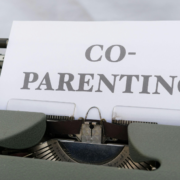Visitation Can Be Supervised If It is in the Best Interests of the Child
A parent would need to have severe problems for a judge in Pennsylvania to order they should have no contact with their child. A more common situation for parents with a criminal record or severe emotional, psychological, or substance abuse challenges is having supervised visitation (or supervised physical custody) during which the parent and child are never alone.
What is Supervised Visitation or Custody?
There are many types of custody in Pennsylvania:
- Legal custody: The right to make major decisions on behalf of the child, including medical, religious, and educational issues. The parents can share it, or one will have legal custody.
- Physical custody: The physical possession and control of a child. This could be by one parent (sole physical custody), or it can be shared between the parents. A parent with primary physical custody will have the child with them most of the time, while the other parent will have partial physical custody.
Supervised physical custody means that either through a court order or an agreement reached by the parents, an agency or an adult monitors the interaction between the parent and child during visits. If a judge believes the child will not be safe when alone with the parent, they may order supervised physical custody.
Why Would This Be Ordered?
Custody decisions should be based on the child’s best interests, not what one or both parents want. In these cases, the court balances the importance of the parent having time with the child with the child’s well-being and best interests.
Pennsylvania law presumes it is in the child’s best interests to have a relationship with both parents. But that has its limits. If the parent’s problems are such that they would harm the child or the parent is indifferent to them, a judge could order that the parent have no custodial rights. Common reasons include:
- Domestic violence
- Child neglect
- Substance abuse
- Unmanaged or poorly managed mental illness
- Criminal acts
If the parent’s situation is not as severe and he or she wants to be part of the child’s life, a judge may order supervised parenting time rather than revoking a parent’s custody rights.
How Would Supervised Physical Custody Work?
A court order may specify that a particular person be present during this supervised time, such as an extended family member or friend trusted by both parents. If there is no such person, or a judge is uncomfortable with that arrangement, they may decide that a qualified professional supervisor must be present. The setting will be safe for the child, whether at the parent’s home or at a location where there is room for these types of visits.
If you are the parent wanting to limit your child’s time with the other parent, ending custody rights is a drastic step few judges want to take. Unless the other parent is legitimately a danger to your child, you should be open to supervised physical custody.
If you are a parent facing challenges in your life, you can still seek custody. If you struggle with being with your child alone, accepting supervised visits may be a good choice. In the meantime, you should actively address your problems and take steps to show you will be a responsible parent.
A custody order can be amended if one parent shows that circumstances have changed. If the supervised parent:
- Does not show up, is intoxicated, is still struggling with psychological problems, or says or does inappropriate things during visits, a judge may end their custody rights.
- Is under control, appropriately dressed, actively engaged with the child, and appears to be heading in the right direction, a judge may allow future unsupervised visits.
Supervised physical custody can be a turning point in the child’s relationship with the parent. Which direction it goes depends on how the supervised parent responds.
Child Custody Lawyers You Can Trust
Karen Ann Ulmer, P.C. lawyers are skilled in developing compelling legal arguments and evidence that judges need to make wise child custody decisions. If you have questions about supervised visitation or need legal representation, call us at (215) 752-6200 today.








